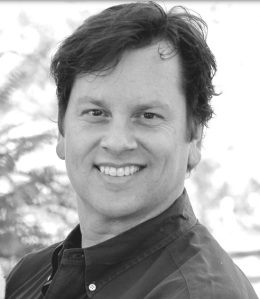
I can’t tell you how many posts and articles I’ve read by established authors who make a living writing books who basically say they don’t know what they’re doing. Wendig just did it again, and he does it a lot. Stephen King did it in On Writing. They all do it!
Do what?
Made the statement that they pretty much have no idea why they are successful.
Well that sucks.
I want to emulate what they did to become successful and they say they don’t know what those things were. That is not helpful!

Now, you as a writer may take that as very discouraging. If you were a trainee at a 9 to 5 job and the boss said – repeatedly – that she had no idea how to show you how to be successful at that job, you’d probably quit. You probably should quit. I’m not flying in an airplane where the pilot says he has no idea how he manages to not crash every time he flies. I wouldn’t hire a firefighter with ten years of experience who said he was clueless how they ever managed to put out burning houses.
If you heard that at your workplace, maybe you’d decide you had an incompetent boss. Maybe you’d think well, if nobody knows how to do it, and they make money at it, it must be easy. Or they are all just lucky.
Why can’t the successful authors tell you how to do it?
Or do they secretly not want you to know?
They admit to some things. Hard work and luck, is basically what it comes down to. That’s the message I glean from these successful authors.
Emphasis on the luck part.

Great. Cos I’m known for my fantastic luck. Why, I won the lottery twice just last year – just like you? Ready for that old gem “The harder I work the luckier I get?” Riiiiiiiiight…
It’s not just true in book writing, either. Comedian Richard Lewis said in an interview that he was lucky. He’d been a stand up comedian, been in movies, had a successful TV show – and he said that there were other people just as talented who never went anywhere. His advice for young people coming up? “Whether you’re a stand up or a dancer, practice your craft and hope for a break” Translation: a little luck. As in, I’m not really sure why I made it.
Ugh.

Let me focus on that for a moment. I like to help new authors avoid some of the pitfalls I experienced when I started out, like ZERO sales of my first book for six months. I have a business background, having gone to President’s Circle for two different Fortune 500 companies, so I’m analytical and I’m a pretty damned good manager – of myself, but I sent a lot of people to President’s Circle at those companies, too. I figure out what makes someone successful and then create a path to get there. So I find this “I don’t know” shit particularly irritating.
But here’s some hope:
Megyn Kelly was a successful lawyer who walked away from it all to become a TV journalist. She now hosts one of the most successful news-opinion TV shows in the country. She’s humble, so she doesn’t deny that luck played a role, but she definitely attests to the ingredient of hard work – and not settling for less. That, she says, she learned from Dr Phil (“You need a check up from the neck up.”), who says the difference between you and somebody you envy is: you decided to settle for less. Maybe luck wears a different mask sometimes. Settling for less also means going that extra mile.
Let that sink in. Embrace it for a moment.
The difference between you and somebody you envy is: you decided to settle for less.
With those words serving as her epiphany, Megyn Kelly started a new course, away from a successful law career and toward TV journalism as a complete unknown. That only sounds easy in retrospect. She wasn’t famous when she made that move. She was scared. The risks were big.

Stack those things up and a form begins to take shape. The more art-driven the field, the less the successful people admit to knowing why and how they did it. The more analytical the field, the more the successful people know, right down to the daily routines, how to be successful. There are stacks and stacks of business books telling you how to be successful in business. STACKS.
Being a successful author is a business.
Let me wait for the boos to die down…
Waiting… waiting…
It’s a business. We measure the success of an author by the amount of money made or the number of books sold. Period.

Okay – gulp – so…
So wake up. The more business skills you bring to analyze what works and what doesn’t, the closer to success you’ll get.
But I don’t have business skills! I’m an artist!
What crap. It’s a balance. Just recognize that. Don’t sell your soul. Nobody’s saying to go chase after the next angst-filled teenage vampire story – unless that is what absolutely drives your soul. Then, do it for all you’re worth – with come caveats. (We’ll get to those.)
I had a lot of advice for a young friend of mine who wanted to be an artist. She was trained as a painter-type artist, and she wanted to do that as a career. (Not as a starving artist, but as a successful artist.) I saw lots of art shows downtown, and vendors with booths on street corners on a Saturday, and artsy friends with cool websites. I encouraged her to do those things. I knew from my corporate job where we occasionally did home shows and events that those booths can be rented by just about anyone, so you didn’t have to be a “real” artist to take part in a sidewalk art fair down town. You’ll sell some stuff and you’ll network.
Mostly, you’ll learn what not to do next time.
But it’ll be fun. Because after about an hour, you discover that the guy in the next booth doesn’t know what he’s doing, either. By the end of the event, you’ll find that most of the attending artists don’t. They don’t know why an event is successful or not, or why they sell a lot of stuff at one event and almost nothing at the next one.
Should you do a book fair? Find out HERE
And when she didn’t choose to do those things, I wondered if she settled for less? She did well for a while, but she’s not an artist today. That artist in the booth on a hot Saturday with no sales was doing what was necessary. Learning what to do next time to get sales.
The author going to do a reading at a small restaurant was doing what was necessary, whether she sold 1 book or 100 or none. She met a highly motivated indie author and talked with him and learned a few things that will help her sell more books.
The authors who do book fairs are doing what’s necessary. The ones who write blogs that nobody reads, the ones that work Facebook with no followers, and Twitter and Instagram and the rest of it – are they pursuing their passion harder than you, and that’s what makes them appear lucky when they make it?
Here’s another thing to consider. At those Fortune 500 companies, when we did corporate events, some were good, some were bad. We analyzed the hell out of it, though – and by we, I mean I – to learn why and to not repeat mistakes. Cos your boss doesn’t want to throw away money; people lose jobs over that. Like the guy who insisted on doing the event. I learned how to make our events successful. We didn’t attend too many bad events.

Artists aren’t known for their analytical skills. Neither are most stand up comedians, dancers, or writers. (Their agents theoretically are, though. But many author folks say that’s not true, either, and as an indie you won’t have an agent. Thank God I’m here.) But those happy souls who learn to write and market and do events and analyze results and learn from their mistakes will be more successful than those who don’t analyze things and don’t learn from their mistakes.
TOMORROW: PART TWO- what do we do about it?
FOLLOW ME! I’m this helpful and funny all the time. Probably. Don’t miss another valuable bauble that falls from my fingertips. You read this far; you may actually need this stuff. SUBSCRIBE/FOLLOW TODAY (click the follow “Follow” button, above) and if you send me your email through the Contact Me button I’ll send you a free copy of my amazingly cute book “The Short Years” plus we’ll probably become friends and start hanging out and stuff.
If you benefit from this blog, share it with your friends!

Enjoy my writing brilliance in all its glory on my Author Page HERE http://www.amazon.com/Dan-Alatorre/e/B00EUX7HEU/ref=ntt_athr_dp_pel_pop_1
and find out about the release of my new book “25 Great eBook Marketing Tips You Wish You Knew” by emailing me at savvystories@outlook.com and I’ll let you know when you can get a free advance copy! Shh! Don’t tell.
11 replies on “Successful Authors Don’t Know What They’re Doing, part one”
It’s amazing how many words can be cut with a little effort!
The same can be said for dialogue tags. Thankfully, I have a writing mentor who keeps pointing the damn things out to me . . . action tags say twice as much, usually without adding those pesky extra ‘he saids,’ ‘she saids.’
LikeLiked by 1 person
(you know who you are)
LikeLiked by 1 person
Well, I have a good author friend who ATTACKS my occasional passive voice, too, so it all works out, right?
LikeLiked by 1 person
[…] Yesterday we discussed the very frustrating reality that many successful authors admit they don̵…. Luckily, I have some ideas. Let’s explore them together. […]
LikeLike
Wow, great post!
If you ever have an opportunity to give a motivational speech to a group of writers, or anyone really, this is your outline!
LikeLiked by 1 person
Thanks! I made it myself!
LikeLiked by 1 person
[…] (Learn what famous authors do HERE) […]
LikeLike
[…] (Recently we discussed Successful Authors and how ofen they admit they don’t know what they’re dong, HERE.) […]
LikeLike
[…] Source: Successful Authors Don’t Know What They’re Doing, part one […]
LikeLike
Really? An author doesn’t need analytical skills? Last I checked, people can’t write worth a damn if they can’t analyze a story, too. All marketing aside, writing requires analytical thinking, otherwise you’re just throwing words together.
LikeLike
Right you are, Jane. The more analytical skills an author masters, the more likely they are to be successful in a lot of different ares of their chosen business.
LikeLike